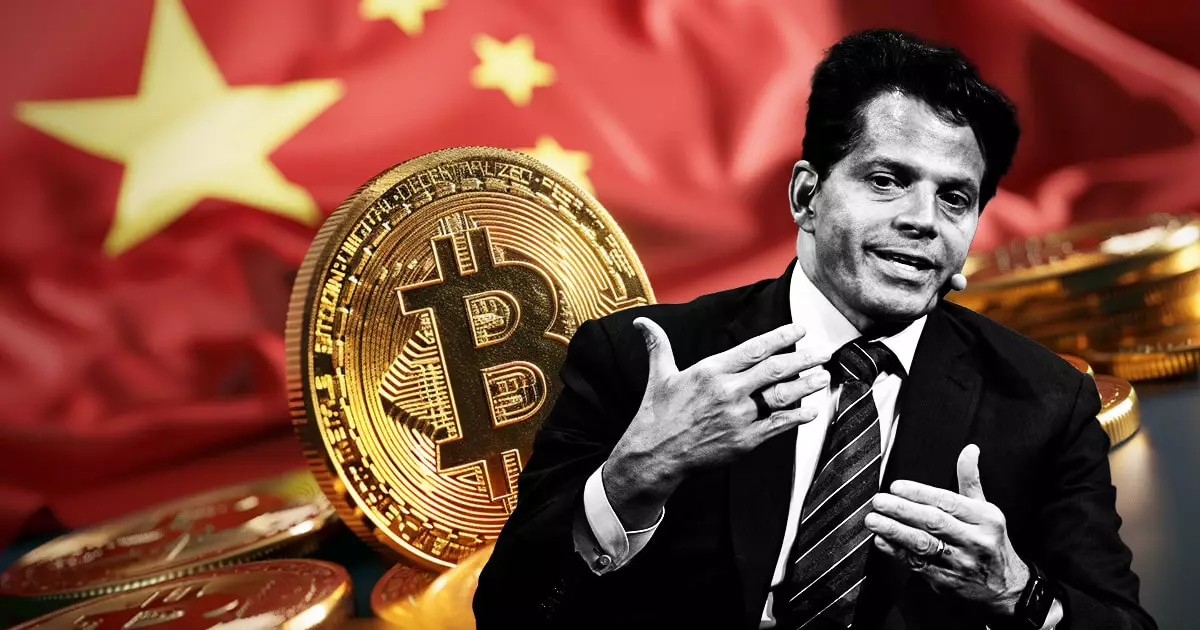The narrative surrounding Bitcoin is transforming as nations begin to consider it not just as a speculative digital asset but as a strategic reserve that can enhance financial stability and resilience. Anthony Scaramucci’s assertions at the Bitcoin MENA 2024 conference catalyze a growing discourse on the geopolitical implications of Bitcoin’s adoption as part of national reserve assets. His statements underscore a pivotal moment where global finance is increasingly influenced by digital currencies.
Scaramucci’s predictions regarding China signal a significant potential shift in the world of Bitcoin. He foresees the resurgence of Bitcoin mining in China and its incorporation into the country’s reserve assets within the next year. This is particularly striking given that China’s previous regulatory clampdowns have severely restricted its mining industry as well as its financial involvement with cryptocurrencies. If these predictions hold true, it could signify an unprecedented turnaround, suggesting that the Chinese government might realign its financial strategy to embrace Bitcoin. This realignment may reflect a broader global trend where nations leverage digital currencies as a bulwark against economic uncertainty and as instruments for diversifying reserves.
The international interest in Bitcoin reserves is not isolated to China. Countries around the world are beginning to recognize the strategic importance of incorporating Bitcoin into their financial frameworks. Examples abound, from Russia’s legislative efforts to establish a national Bitcoin reserve aimed at mitigating the impacts of sanctions, to Brazil’s proposal aiming to allocate considerable reserves to Bitcoin as a means of bolstering economic resilience. Such political maneuvers suggest a collective acknowledgment that Bitcoin could function as a strategic asset in an increasingly unpredictable global landscape.
Moreover, in the United States, there has been a marked shift in how federal and state authorities perceive Bitcoin. Policymakers are increasingly engaged in discussions to formalize Bitcoin reserves, reflecting a strategic pivot rather than mere speculative interest. With recent endorsements from influential asset management firms and the potential for legislative reforms, it appears that the U.S. is not merely an observer in this evolving geopolitical landscape, but rather a key participant.
The evolution of institutional attitudes towards Bitcoin is noteworthy. Once regarded primarily as a vehicle for speculative gains, Bitcoin is now vying for a seat at the global finance table as a reserve asset. The willingness of major corporations, including asset giants like BlackRock, to consider support for a U.S. strategic Bitcoin reserve slightly alters the investment narrative of Bitcoin from a high-risk asset to a more stable hedge against economic fluctuations.
As nations evaluate the strategic implications of holding Bitcoin, they are likely weighing its potential for providing monetary independence against persistent concerns regarding its volatility and the associated wealth redistribution it may engender amongst taxpayers. Proponents argue that these risks can be mitigated through informed policy strategies that bolster financial stability and enhance international monetary leadership.
The unfolding developments surrounding Bitcoin could redefine international financial hierarchies. As more nations adopt Bitcoin as a strategic asset, the traditional currency systems may experience shifts that favor greater inclusivity for digital assets. This could culminate in a more diversified financial ecosystem where Bitcoin’s role transcends mere speculation, enabling countries to navigate economic challenges more effectively.
Scaramucci’s insights suggest that if China were to fully integrate Bitcoin into its financial policies, it could lead to significant geopolitical shifts in digital finance. The interplay of U.S. openness towards Bitcoin, coupled with other nations’ proactive measures, indicates a trend towards broader acceptance, which could yield opportunities for new alliances and economic collaborations.
As nations globally begin to position Bitcoin as a part of their financial strategies, we find ourselves in a transformative era where digital currencies are no longer peripheral but rather central to discussions about economic resilience and national security. The future of Bitcoin may hinge on how it is perceived by state actors and whether it can truly be embraced as a legitimate component of national reserve strategies. The path forward is fraught with both opportunities and challenges, and stakeholders will need to be astute in navigating this dynamic landscape.

